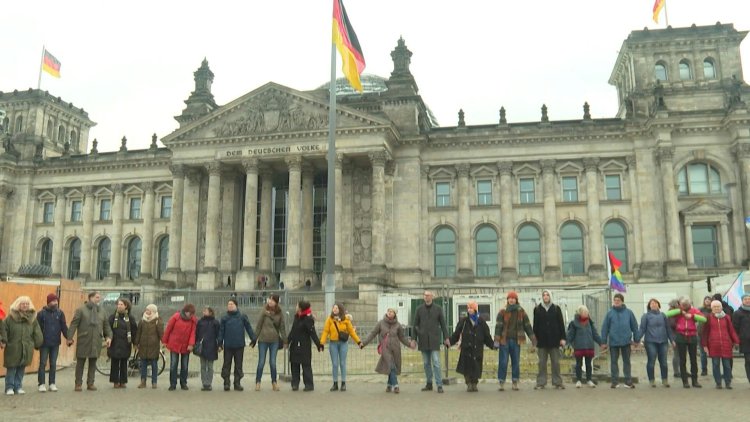Support for AfD Holds Firm

Germany has seen a huge wave of protests against the far-right AfD in recent weeks, but they appear to have done little to dilute support for the anti-immigration party in its stronghold.
With its cobbled streets, red sloping roofs and timber-fronted houses, the rural town of Raguhn-Jessnitz in the former East German state of Saxony-Anhalt last year became the first in Germany to elect an AfD mayor.
And residents remain unapologetic about their choice, even if they refuse to give their names when talking about it.
The Alternative for Germany (AfD) party was created in 2013 as an anti-euro outfit before seizing on anger over mass migration to Germany to enter parliament for the first time in 2017.
The party then failed for several years to make any more meaningful progress.
However, it has seen a renewed surge in popularity over the past 12 months, seizing on concerns over rising migration, high inflation and a stumbling economy.
The AfD is currently polling in second place nationally, second only to the conservatives. It is the top party in several eastern regions where elections are set to be held later this year.
But the party sparked a backlash last month after a press investigation revealed that some of its members had discussed the idea of mass deportations at a meeting with extremists.
Hundreds of thousands of people have since taken to the streets across Germany to protest against the AfD and right-wing extremism.
In the wake of the demonstrations, one key opinion poll reported last week that support for the AfD had dipped below 20 percent for the first time since July 2023.
But in Saxony, one of the three states going to the polls later this year, a survey last week had the AfD on 35 percent.
There has also been a surge of interest in joining the party, with the FAZ website reporting up to 150 applications a day since the scandal erupted.















